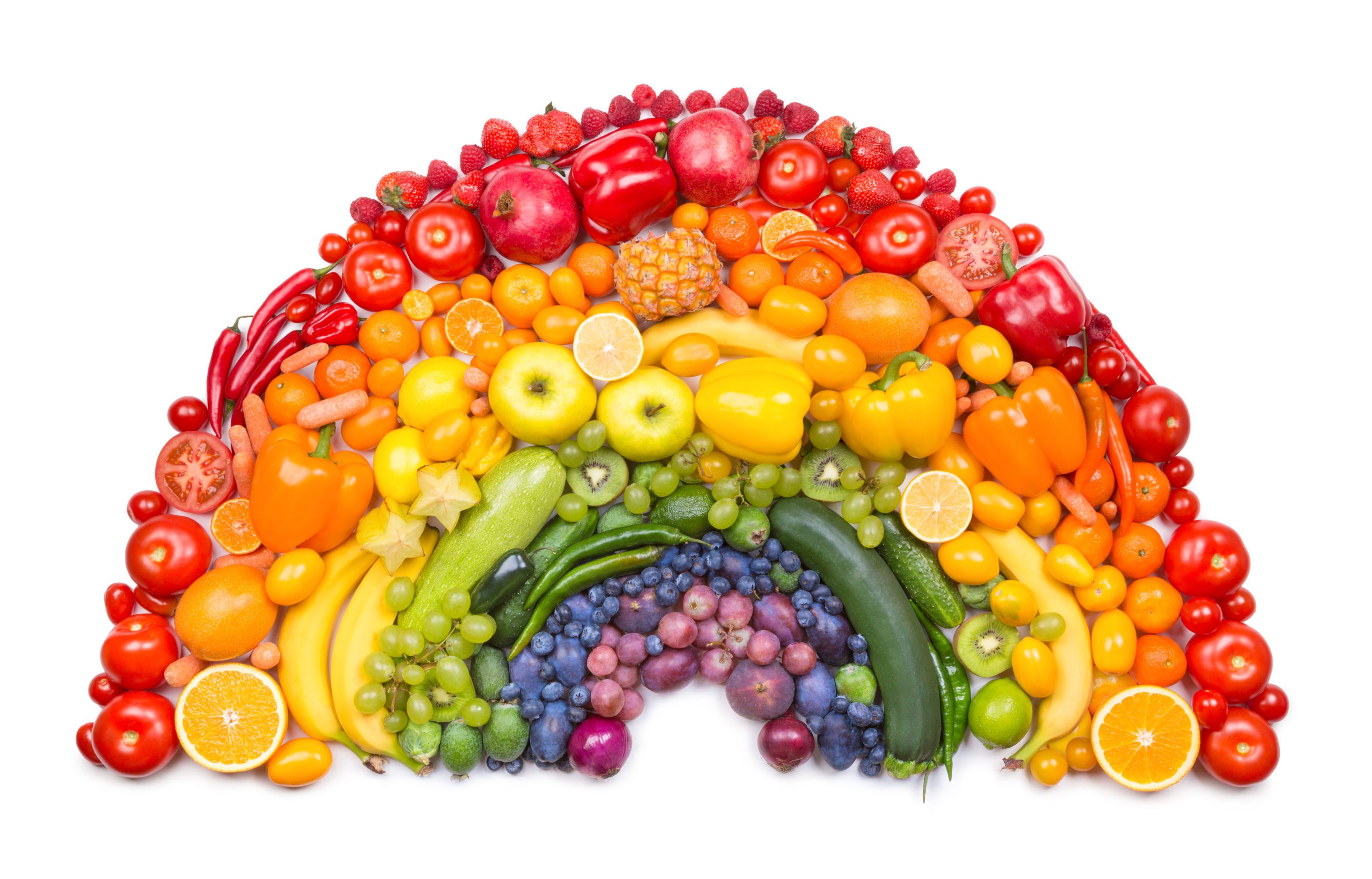Eat the Rainbow
Shelby Stein, RDN, LRD – Community Dietitian
You may have heard that you should eat “the colors of the rainbow” or that eating richly colored produce, like dark leafy greens, sweet potatoes, beets, and berries, is good for your health. The reason why these recommendations exist is because foods that come from plant sources contain natural substances called antioxidants. Antioxidants may help to prevent or delay some types of damage to our cells, such as some types of damage that can contribute to the development of inflammation and cancer. Free radicals are unstable molecules that are formed in our bodies when we exercise, turn food into energy, and when exposed to environmental factors like cigarette smoke, air pollution, and sunlight. These free radicals can cause oxidative stress to our cells. This can lead to damage to our bodies cells. This is where antioxidants come into play – these substances fight the oxidative stress and keep our cells healthy.
Foods of plant origin, like vegetables, fruits, whole grains, beans, seeds, and nuts are rich sources of antioxidants. Often in fruits and vegetables, their color signifies a type of antioxidant. For example, the antioxidants anthocyanins give berries their blue, purple, and red colors and carotenoids give carrots, squash, sweet potatoes, and cantaloupe their orange color. Sulforaphane is a potent antioxidant found in cruciferous vegetables such as cauliflower, broccoli, kale, collard greens, and cabbage. There are many more types of antioxidants in our foods and through research we are continually learning about different type of antioxidants and how they interact with our body’s cells.

So you might be wondering, since antioxidants are so good for us, shouldn’t we try to get as many of them as we can? Getting abundant amounts of antioxidants from our foods is incredibly healthy for us and is something we should strive for by eating a healthy diet rich in plant foods. Antioxidant supplements are available over the counter; for the most part, these supplements should be avoided and only taken cautiously when advised to by a qualified medical professional. Some studies have found the use of high-dose vitamin E supplements to increased risk of stroke and prostate cancer and high-dose beta-carotene supplements to increase risk of lung cancer. More is not always better, which is exactly the case in mega-dose antioxidant supplements.
By eating fruits, vegetables, grains, beans, nuts, and seeds in a variety of colors, our bodies will get a wide variety of damage fighting antioxidants to help keep us feeling our best and to decrease our risk for developing chronic disease such as cancer. Try to have a variety of different colored plant foods each day! Remember, it doesn’t matter if the fruit and vegetables we eat are fresh, frozen or canned – the most important thing is to eat them as often as possible!
If you’d like to set up an appointment with a registered dietitian for support in your nutrition and health goals or for assistance in planning a healthy diet, please give the diabetes program a call at 701-627-7931!